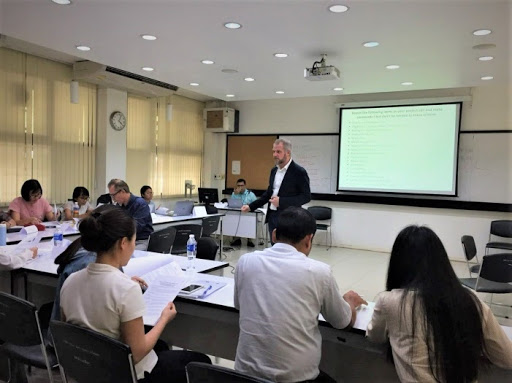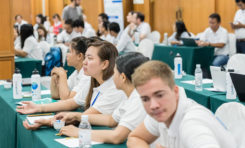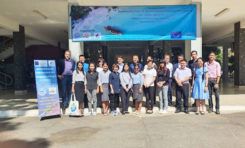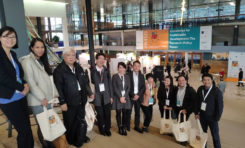
E-Training session
Producing knowledge: writing a research paper
14 September – 16 October 2020
Terms of reference – 30/07/2020
Context
Improvement to the quality of teaching and research in Water and Natural Resources Management (WNRM) cannot be ensured without a) a high commitment of HEIs in the partner countries, b) a high quality of trainers selected from the program countries, c) the ability to provide support (financial and supervision) of young researchers, and d) a balance/good fit between the academic skills taught and the skills needed by the wider economic and social environment.
This is the reason why WANASEA (Water and Natural resources in South-East Asia) project includes, as part of its activities, 5 training sessions in its 3 years of implementation. While the first and second sessions were centered on “Genesis of research: science, knowledge and society” and “Project design: writing a scientific proposal”, the third one focused on “Implementing research: methodological and management challenges”. This fourth one focuses on “Producing knowledge: writing a research paper”. It is co-organized by the Center for Research and Expertise on Education and Development (CREED, France) and the Thammasat Business School, Thammasat University (Bangkok, Thailand).
A clear holistic approach is taken since WNRM issues are clearly connected to their societal environment. In addition, an inclusive approach that combines learning about both the scientific and professional aspects of research and teaching activities makes WANASEA’s training sessions unique.
Objectives
The main objective of this fourth training session is to focus on how to transform results of research into transferable knowledge within the scientific community. We will work on specific methods and tools supporting the writing of a scientific article, the constitution of relevant bibliography (Zotero), identification of journals and development of writing skills (articulation of ideas, English language tricks, etc.).
Target groups
Academic staff, who are implementing, or have implemented a research project related to WNRM, are targeted for training. All trainees must be currently involved in the process of writing a research paper. Considering the nature of the topic and the limits of the supervision, the maximum number of trainees will be of 18 people.
Criteria of selection
Trainees should be young professionals (under 40), who can communicate well in the English language (including in writing) and who demonstrate a strong interest for developing research and teaching innovation. We encourage WANASEA’s partners to carefully select the trainees in order to meet the above mentioned objectives. Trainees must come with a proven experience of research writing. It is a condition to be selected.
Producing knowledge: writing a research paper
In this session, we will focus on different elements that should be addressed while writing a research paper. This session will help the trainees to start, move on or conclude their research paper. It should also serve as a basis for its institution to set up some administrative support for researchers.
Methodology
The learning process is founded upon concrete and tangible activities related to trainees’ concerns. Scientific writing methods and exercises will be based on research results of the trainees themselves, resulting in clear improvement of the scientific publications of the participants. For this reason, substantial (but reasonable) preparatory work will be asked to the trainees.
Because of the restrictions related to the COVID-19 crisis, this training session is organized entirely online. It will use a teaching methodology based on three phases:
Phase 1 (14-18 September): daily 120 min webinars combined with homework to be sent to trainers. Our objective being to address in priority the needs of the participants, the topics of the webinars will adjust once the trainees are identified and according to the priority expressed by trainees during the pre-class activities. Consequently, the subjects mentioned hereunder might change.
- Webinar 1: Introduction and presentation of the e-training session methodology; identification of the right journal; how to read and critique a scientific paper.
- Webinar 2: The research question; presentation of the hypothesis.
- Webinar 3: Description of the methodology and experimental activities; analysis of data.
- Webinar 4: Intellectual property and plagiarism; discussion of the data in a wider scientific context; conclusions.
- Webinar 5: Abstract; bibliography; conclusions of phase 1 and presentation of phase 2 and expected outputs.
Phase 2 (21 September to 9 October): personal work on trainee’s articles with regular interactions with trainers
Phase 3 (12 – 16 October): daily 90 min webinars. – Webinars 1-4: reading and critique, by trainees supported by trainers, of articles written by trainees during phase 2 (2 articles per webinar) – Webinar 5: Conclusions of the e-training session, wrap-up, and presentation of next Wanasea training session.
For this training session, 6 trainers will be mobilized. We expect a high level commitment of the trainers and trainees attending seminars and transparency of the selection process.
Calendar and milestones
- From 5 August to 1 September: call for applications open (see application form below)
- 2 September: Wanasea’s members send to CREED up to 5 applications
- 9 September: selection of the trainees and beginning of the pre-class activities.
MATERIALS FOR DOWNLOAD
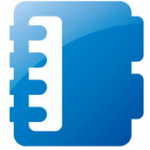 Training Session 4 – Minutes
Training Session 4 – Minutes
 Training Session 4 – Booklet
Training Session 4 – Booklet
Webinar
Webinar 1: Introduction and presentation of the e-training session methodology; identification of the right journal; how to read and critique a scientific paper.
Webinar 2: The research question; presentation of the hypothesis.


